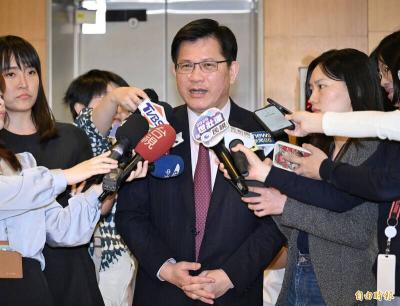Tokyo-based Taiwanese writer Liu Li-erh (劉黎兒) yesterday in Taipei shared her latest fact-finding from Japan to say that now is the best time to put a halt to nuclear power in Taiwan.
Having lived in Tokyo for 30 years and experienced the devastating earthquake and tsunami that struck Japan on March 11 last year and led to the nuclear disaster at the Fukushima Dai-ichi nuclear plant, Liu said that more than 1 million Japanese continue to live in areas with high daily radiation exposure and the total cost of damage from the nuclear disaster is still too high to estimate.
“If nuclear power is not abolished, then our assets — especially those fixed assets in Taipei City and New Taipei City (新北市) — would be ‘abolished’ if a nuclear disaster occurs,” Liu told participants at a two-day forum on transforming Taiwan into a sustainable low-carbon environment.
Liu said that although her house is located about 80km away from the Fukushima Dai-ichi plant, the property has lost almost all of its value due to the high levels of radiation present since the disaster.
She said that the Japanese government had set provisional regulations for radiation-contaminated food at 500 Bq/kg for radioactive cesium levels immediately after the disaster, and reduced the limit to 100 Bq/kg in April. However, this is still 1,000 times the limit for rice (0.1 Bq/kg) in force prior to the disaster.
The Fukushima Dai-ichi catastrophe proved that sometimes even the government is unable to cope with the enormous damage from a nuclear meltdown, she said.
Many Japanese have learned from the disaster that “the knowledge of nuclear specialists is limited, they are not experts on evaluating the harm and impact that nuclear disasters can cause humans or society,” she said, adding: “So it becomes important to make judgements on our own, instead of always believing the government.”
Many experts from Japan and other countries are now very concerned about the more than 1,500 fuel rods housed in the storage pool inside the damaged No. 4 reactor building at Fukushima Dai-ichi, warning that a disaster worse than the three reactor meltdowns could happen if the pool collapses, she added.
“If the storage pool breaks and runs dry, the nuclear fuel inside will overheat and explode, causing a massive radiation release over a wide area,” she said.
Japan’s Mainichi Shimbun on April 2 said that “if this were to happen, residents in the Tokyo metropolitan area would be forced to evacuate.”
“Maybe some international experts have not noticed that we have about 8,000 spent fuel rods stored in the cooling pool at the Guosheng Nuclear Power Plant [in Wanli District (萬里), New Taipei City] and a total of about 16,000 throughout the country,” she said.
Taiwan has good reason to abandon all nuclear power operations because many international experts have already warned that the two nuclear power plants in northern Taiwan pose an immediate threat to greater Taipei, she said, adding that in February France’s Le Monde newspaper warned about the risk from poor management of spent fuel rods at the Guosheng plant.
Taiwan has a high reserve electricity capacity, so there would be no power shortage even if the nuclear power plants were immediately closed down, Liu said.
Many Japanese companies and government offices have saved up to 50 percent on their electricity consumption since the disaster, “so Taiwan can surely do the same to end our reliance on nuclear power,” she added.

Taiwan would welcome the return of Honduras as a diplomatic ally if its next president decides to make such a move, Minister of Foreign Affairs Lin Chia-lung (林佳龍) said yesterday. “Of course, we would welcome Honduras if they want to restore diplomatic ties with Taiwan after their elections,” Lin said at a meeting of the legislature’s Foreign Affairs and National Defense Committee, when asked to comment on statements made by two of the three Honduran presidential candidates during the presidential campaign in the Central American country. Taiwan is paying close attention to the region as a whole in the wake of a

Chinese Nationalist Party (KMT) Chairman Eric Chu (朱立倫), spokeswoman Yang Chih-yu (楊智伃) and Legislator Hsieh Lung-chieh (謝龍介) would be summoned by police for questioning for leading an illegal assembly on Thursday evening last week, Minister of the Interior Liu Shyh-fang (劉世芳) said today. The three KMT officials led an assembly outside the Taipei City Prosecutors’ Office, a restricted area where public assembly is not allowed, protesting the questioning of several KMT staff and searches of KMT headquarters and offices in a recall petition forgery case. Chu, Yang and Hsieh are all suspected of contravening the Assembly and Parade Act (集會遊行法) by holding

President William Lai (賴清德) has appointed former vice president Chen Chien-jen (陳建仁) to attend the late Pope Francis’ funeral at the Vatican City on Saturday on his behalf, the Ministry of Foreign Affairs said today. The Holy See announced Francis’ funeral would take place on Saturday at 10am in St Peter’s Square. The ministry expressed condolences over Francis’ passing and said that Chen would represent Taiwan at the funeral and offer condolences in person. Taiwan and the Vatican have a long-standing and close diplomatic relationship, the ministry said. Both sides agreed to have Chen represent Taiwan at the funeral, given his Catholic identity and

Taiwan would welcome the return of Honduras as a diplomatic ally if the next president of that country decides to make such a move, Minister of Foreign Affairs Lin Chia-lung (林佳龍) said today. “We would welcome Honduras if they want to restore diplomatic ties with Taiwan after their elections,” Lin said during a legislative hearing. At the same time, Taiwan is paying close attention to the Central American region as a whole, in the wake of a visit there earlier this year by US Secretary of State Marco Rubio, Lin said. Rubio visited Panama, El Salvador, Costa Rica and Guatemala, during which he